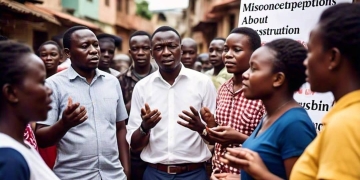
KAMPALA — President Yoweri Museveni has come to a grim realization that the economy is nosediving and that people are losing patience according to intelligence reports.
On Monday, police said its spies had picked intelligence reports on plans by unidentified groups to hold processions and assemblies— expressing discontent against the surge in commodity prices and fuel.
According to reports, President Museveni directed Inspector General of Police, Martins Okoth Ochola and Military Police to foil any planned protests without fail.
The development was also confirmed by Police Spokesperson Fred Enanga who said all territorial Commanders have since been instructed not to allow any unlawful assemblies to occur and to take actions aimed at apprehending the agitators and instigators of these unlawful assemblies.
“This is to help ensure the rights of the majority of Ugandans to life, liberty and property are not deprived by a group of self-centred activists,” Enanga noted.
President Museveni has also resolved to address the nation, particularly on surging commodity prices on Wednesday July 20.
His address scheduled to kick off at 8pm, will be broadcasted on television and radio stations, according Lindah Wamboka, the senior press secretary to President Museveni.
Prices of most essential commodities and foodstuffs have gone up sharply.
This is mainly attributed to the rise in fuel prices since January this year.
Currently, a litre of petrol goes for between sh6500 and sh6900 while a litre of diesel is between sh6300 and sh6690. These prices vary from one filling station to another.
Essential commodities such as a bar of soap currently cost between sh6000 and sh10,000 while a kilo of sugar averagely goes for sh4000.
The average cost of a 3litre container of any brand of cooking oil averagely costs sh38,000.
This is up from sh24,000 that it used to cost at the beginning of this year.
A kilogram of Maize floor has reached a record high of 4000/=.
According to Bank of Uganda data, the rising food and energy prices, intensified by a weaker Uganda shilling, have worsened the inflation outlook for the remaining part of 2022.
Headline and core inflation are forecast to average 7.4% and 6.3%, respectively in 2022, slightly higher than the 7.2% and 6.1% that was projected in the June 2022 forecast round.
President Museveni’s position on government’s non-intervention to help households in the face of rising commodity prices continues to leave discontent especially as the situation is getting worse.
Kampala City Traders’ Association argues that it’s not possible that the government can totally lack a solution of some kind.
Apparently, President has directed Finance Ministry cut some of government expenditure as one of the ways to enable the country crawl out of the dire economic situation.
President Museveni previously ruled out provision of subsidies or tax waivers as a way of cushioning Ugandans against the rising prices of most goods.
He, however insisted that the only way out is being frugal and in the same measures, experts and other members of the public asked government to lead by example to cut its expenditure.
Speaking on Tuesday, the Ministry of Finance Permanent Secretary, Ramathan Ggoobi said that in the quarter one expenditure limits for the first quarter of the financial year 2022/23 released on July, 8, government has slashed its non-wage expenditure .
“The quarter one release of government of Uganda funds excluding debt amount to shs4.676 trillion. The non-wage quarter one projections were shs3.429 trillion but we have released shs1.813 trillion,” Ggoobi told journalists.
According to the Secretary to the Treasury, while submitting work plans, ministries wanted about 33% of the shs48 trillion for use in the first quarter of the year, noting that as part of the expenditure cuts, only 19.9% has been released.
“In order to balance fiscal and monetary policy, we have only been able to release 18.9% of that budget to ministries. This is a very strategic fiscal policy intervention,”Ggoobi said.
He mentioned items like travel, workshops and fuel as some of the items under the non-wage bill whose expenditure has been slashed by government as a way of dealing with the economic crisis.




















